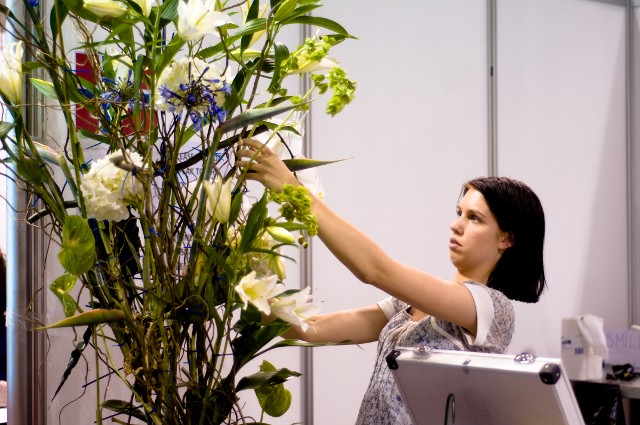The florist may work in one of several sectors but often they are self-employed and work on commissioned projects or in the retail sector. As such they need to have business acumen and excellent interpersonal skills when dealing with clients. Excellent levels of customer care and sales skills are crucial. As themed floral works are often commissioned for important life events such as weddings, the florist must have perception and be able to offer appropriate expert advice to the client whilst interpreting the vision for the finished project. Flowers and other botanical materials are delicate, easily damaged or spoilt and have a limited storage life. As such the florist must be respectful of the raw materials with which they work and apply extensive knowledge of effective sourcing, purchasing and storage of all botanical materials.
Design of a floral work, whether it is a small bouquet or a large installation for a major event, requires the florist to be innovative, creative and to demonstrate artistic and design talent that incorporates aesthetics and practicalities. The florist must apply the rules and theory of composition, colour and technique as valid by the floristry trade worldwide, and show clear ideas (principles and elements of floral design) in his/her works. The florist will use their expertise and knowledge of flowers, plants, botanical materials and accessories to produce floral works.
There is a wide scope of practice in industry. Some florists will work in retail outlets and prepare bouquets and arrangements speculatively for sale and must therefore be keenly aware of their market. At the other end of the professional spectrum, a florist may be commissioned to provide floral displays for major high profile international events that require interpreting a theme and working effectively with a large team and other professionals in a high pressure situation with tight time limitations.
